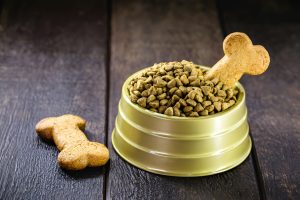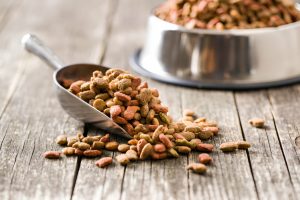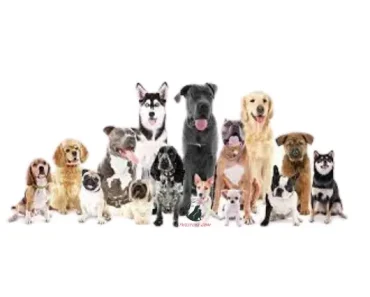In today’s My Dog fast-paced world, it’s easy for our canine companions to get caught up in the monotony of dry food diets. While dry food provides essential nutrients, adding variety and nutrition boosts can significantly enhance your furry friend’s overall health and happiness. In this article, we’ll explore ten healthy additions that can elevate your dog’s dry food diet to new heights.

Dog
The best diet for dogs typically depends on their age, breed, size, activity level, and any specific health conditions they may have. However, a well-balanced diet for most includes high-quality commercial dog food that is appropriate for their life stage (puppy, adult, senior) and formulated to meet the nutritional needs of dogs.
Here are some general guidelines for a healthy diet:
- High-quality commercial dog food: Look for brands that have whole meat sources (like chicken, beef, or fish) listed as the first ingredient and avoid foods with excessive fillers, artificial colors, and preservatives.
- Protein: are omnivores and need a good source of protein for muscle maintenance and energy. Look for foods with a high protein content.
- Carbohydrates: Carbohydrates provide energy for, but they should not be the main ingredient in their diet. Grains like rice, oats, and barley can be included in moderate amounts.
-
Fruits and vegetables: These foodstuffs can offer necessary vitamins, minerals, and fiber. Some find apples and berries or carrots and green beans treats.
-
Fat: This is a rich energy source and provides essential fatty acids. Choose foods with moderate fat levels.
- Water: Ensure has access to clean, fresh water at all times.
- Portion control: Avoid overfeeding, as obesity can lead to various health issues. Follow the feeding guidelines provided on the dog food packaging and adjust according to your activity level and individual needs.
- Consult with a veterinarian: If you have any concerns about your dog’s diet or specific nutritional requirements, consult with a veterinarian for personalized advice.
Additionally, some may benefit from specialized diets prescribed by veterinarians to manage certain health conditions like allergies, obesity, or digestive issues.
Healthy food for dogs includes a variety of ingredients that provide essential nutrients to support their overall health and well-being. Here are some examples of healthy foods for dogs:
- Lean Protein Sources: High-quality animal proteins like chicken, turkey, beef, fish, and eggs are essential for muscle development and maintenance. Make sure the protein sources are cooked thoroughly to avoid any risk of bacterial contamination.
- Vegetables: Many vegetables are safe and nutritious for dogs. Examples include carrots, green beans, peas, sweet potatoes, and pumpkin. Vegetables can provide vitamins, minerals, and fiber to support digestion and overall health.
- Fruits: Certain fruits are safe and can be given as treats in moderation. Some examples include apples (without seeds), blueberries, strawberries, and watermelon. Fruits provide vitamins, minerals, and antioxidants.
- Whole Grains: Whole grains like brown rice, oats, quinoa, and barley can provide carbohydrates for energy and fiber for digestion. Avoid grains that are heavily processed or contain additives.
- Healthy Fats: Omega-3 and omega-6 fatty acids are important for skin and coat health, as well as overall immune function. Sources of healthy fats for include fish oil, flaxseed oil, and small amounts of olive oil or coconut oil.
- Dairy Products: While some dogs can tolerate dairy products like plain yogurt or cheese in small amounts, others may be lactose intolerant. Monitor your dog for any signs of digestive upset when introducing dairy into their diet.
- Supplements: In some cases, supplements may be beneficial , especially if they have specific health conditions or nutritional deficiencies. However, it’s essential to consult with a veterinarian before giving your dog any supplements to ensure they are safe and appropriate.

Dog
When feeding your dog human food as treats or additions to their diet, always ensure that the foods are safe and appropriate for dogs, and avoid giving them anything that could be harmful, such as foods containing chocolate, grapes, raisins, onions, garlic, or xylitol. Additionally, remember that treats should only make up a small portion of your dog’s overall diet, with the majority coming from balanced commercial food.







